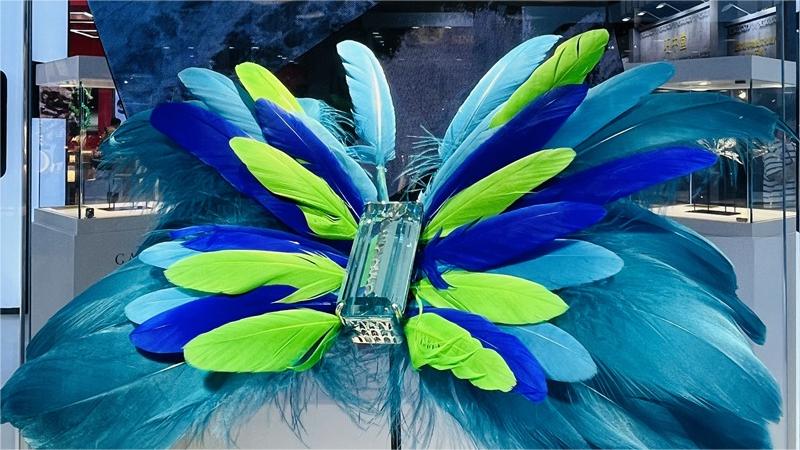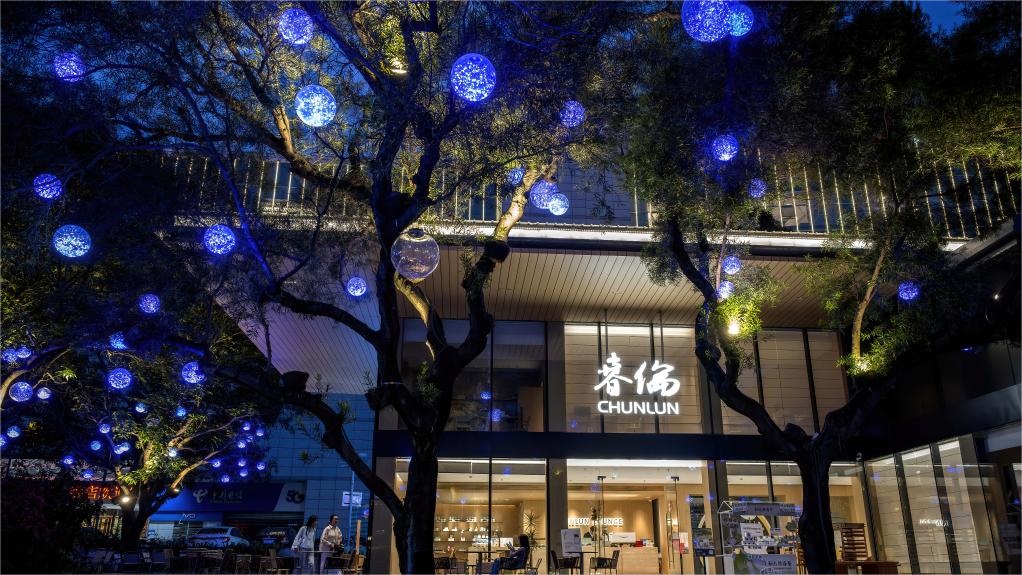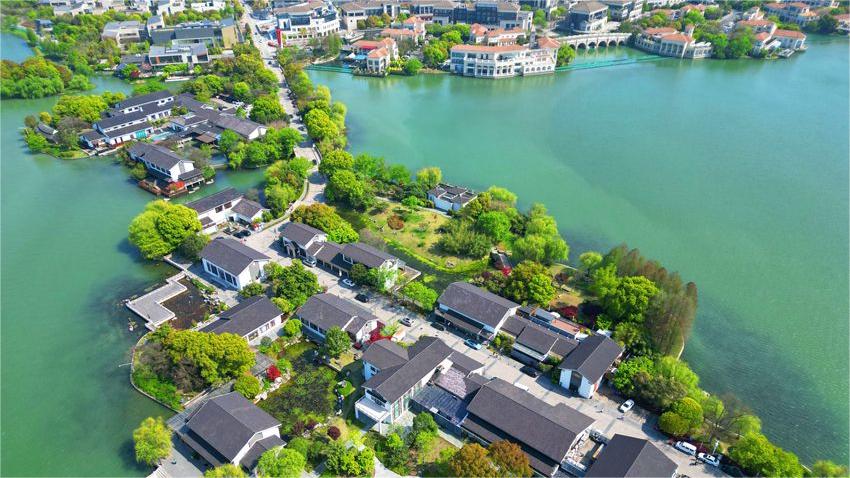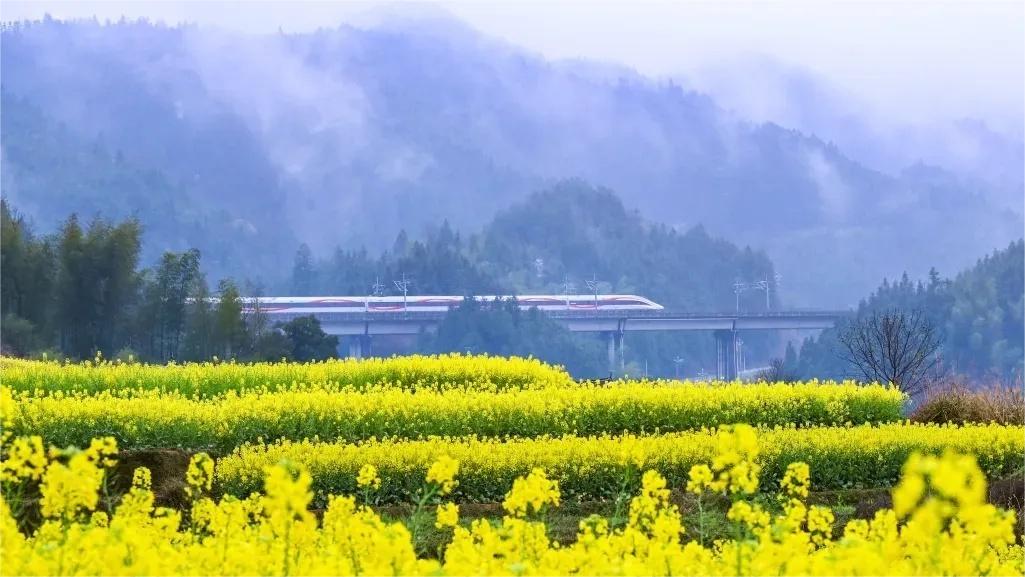Water-splashing festivals boost tourism in China, Southeast Asia
KUNMING, April 17 (Xinhua) -- When Cambodian student Tim Chivorn immersed himself in the just-concluded water-splashing festival in Xishuangbanna Dai Autonomous Prefecture, southwest China's Yunnan Province, he was delighted to find the festive traditions there to be similar to those in his hometown.
"The enthusiasm of Yunnan people makes me feel warm, and it reminded me of my hometown when I splashed water here," said Chivorn.
The water-splashing festival is regarded as one of the most important festivals of ethnic groups in southwest China. During the festival, water is considered an auspicious symbol and people splash water on one another, thereby wishing happiness and good fortune. In Southeast Asia, many countries celebrate this kind of water festival. It is known as the Khmer New Year in Cambodia, while it is called the Songkran Festival in Thailand.
Recently, the water-splashing festival in China's Yunnan and the Songkran Festival in Thailand attracted large numbers of foreign visitors, and celebrating such water festivals abroad has become a new trend for tourists from various countries and regions.
According to the border checkpoint in Kunming, capital of Yunnan, Kunming Port handled about 57,000 inbound and outbound passengers during the water-splashing festival -- a massive year-on-year increase of 298.8 percent.
"I have been to Xishuangbanna many times, but this is the first time I have come to celebrate the water-splashing festival. I feel very happy to enjoy these splendid activities," said Jaruwan Udomsap, a Thai who has lived in China for more than 10 years.
She did not return to Thailand this year, choosing instead to spend the water festival in China's Xishuangbanna, which is full of ethnic and cultural diversity, according to Udomsap.
This year's water-splashing festival was held from April 13 to 15 in Xishuangbanna, and featured various cultural activities each day, such as releasing sky lanterns, traditional dance performances and so on. On the last day of the festival, locals dressed in ethnic costumes celebrated the festival by splashing water on each other.
Udomsap said that in Thailand, people start splashing water on each other from the first day of the water festival and the water-splashing activities usually last three days and serve as a celebration of the arrival of the Thai New Year.
"Although the names of the festivals are different in the two countries, the expectation of good fortune and happiness is the same," Udomsap added. She plans to spend the next water-splashing festival in Dehong Dai and Jingpo Autonomous Prefecture in Yunnan.
Since the mutual visa-free agreement between China and Thailand came into effect, the level of tourism between these two countries has increased significantly. During the water-splashing festival in Yunnan, over 5,000 Thai tourists entered China via Kunming Port, making Thailand the biggest source of inbound tourists during the period. Meanwhile, nearly 10,000 Chinese tourists departed from Kunming to Thailand during the first three days of the Songkran Festival.
Liang Kaiting, a Chinese student in Bangkok, Thailand, was pleasantly surprised to find that there were many Chinese tourists on the streets of Bangkok when she and her classmates experienced the Songkran Festival.
"We have met a lot of Chinese people, and we could feel the joy in the air together," Liang said. She participated in the water-splashing activities for two days, and it was very common for her to come across Chinese tourists who had traveled to Thailand especially for this festival.
Taking advantage of various festivals, China's tourism market is showing continuous and growing vigor.
According to the Mohan checkpoint on China's border with Laos in Yunnan, China-Laos Railway trains were packed with Chinese passengers who traveled to celebrate the water festivals in Laos and Thailand, while many foreign passengers from Laos and Thailand also took the trains to experience the water-splashing festival in China.
Each international passenger train offers 350 seats for cross-border travel, and the recent capacity rate has exceeded 90 percent. Foreign tourist numbers increased 88.97 percent compared with the same period last year, with Thai tourists accounting for nearly 40 percent of total foreign visitors, local railway authorities in Mohan revealed.
To meet increased travel demand, Chinese and Lao railway authorities on April 13 launched one more pair of trains to boost the China-Laos Railway international passenger service. Thanks to the high level of service on offer, passengers can complete the round trip between Xishuangbanna and Luang Prabang of Laos within one day, which greatly improved the convenience of cross-border tourism during the recent water festivals.
The huge flow of tourists drawn by the water festival helped fuel the consumption market in Yunnan. Zhao Jun, the owner of a restaurant in the city of Mangshi of Dehong Dai and Jingpo Autonomous Prefecture, said that during the water-splashing festival, her restaurant had received more than 200 tables of diners each day.
According to local authorities in Mangshi, from April 11 to 14, the city welcomed a total of 282,800 tourists, generating tourism revenue topping 297 million yuan (about 41.8 million U.S. dollars).
"The Dai costumes in Xishuangbanna are so beautiful, while the water-splashing festival there is so much fun," commented Udomsap's Thai friends on social media after she posted photos of this year's exotic water festival experience. Her friends are also attracted by the local ethnic charms and hope to come to China next year for the water-splashing festival, Udomsap added.
Photos
Related Stories
- China to launch month-long tourism promotion campaign
- China's land-locked Gansu embraces tourism boom
- Foreign countries must take steps to attract more Chinese tourists
- Tourism promotion event for China's Shandong held in Seoul
- Friendly travel policies push inbound tourism surge
- Zibo retains its unique flavor among tourists
Copyright © 2024 People's Daily Online. All Rights Reserved.









